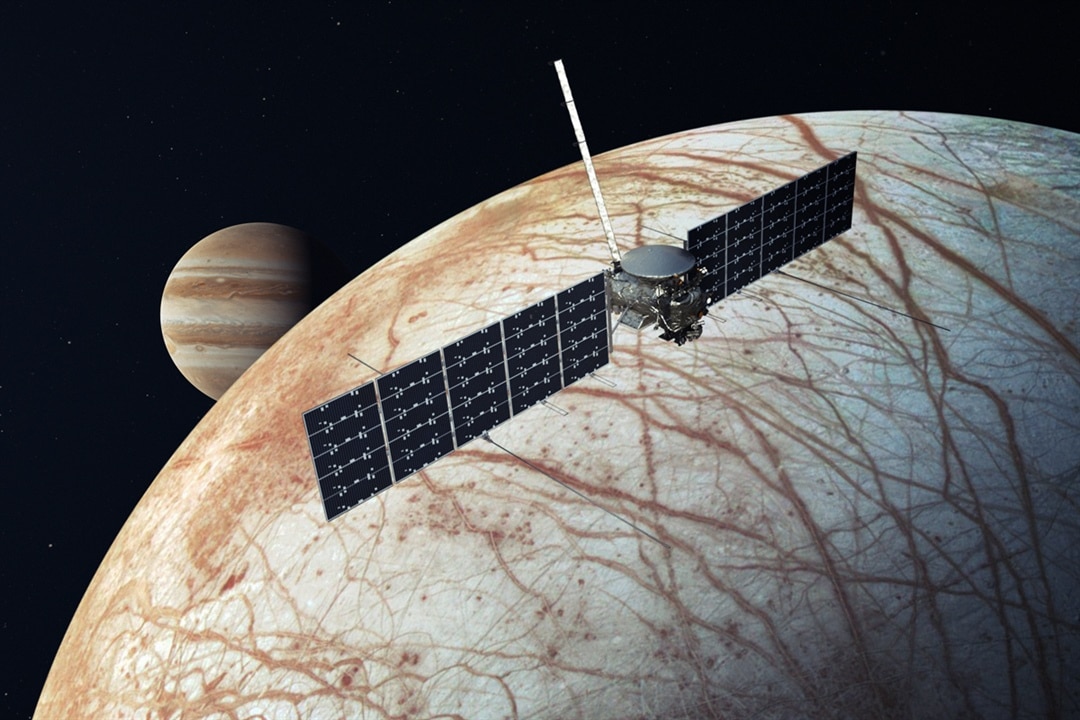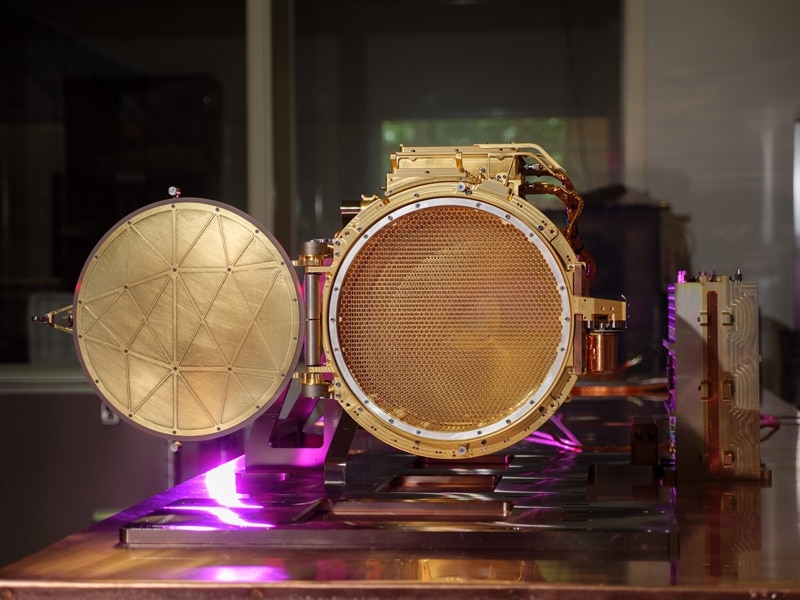
NASA’s Europa Clipper launches this October to Europa to find out if the moon has an ocean that may support life. (Image Credit: NASA/JPL-Caltech)
We all know about Europa --- one of Jupiter’s largest moons. Scientists studying it believe that underneath the icy surface lies a saltwater ocean that could host life. According to scientists, the Europa Clipper, launching October 10, 2024, might have the right instrument, the Surface Dust Mass Analyzer (SUDA), to search for life-supporting elements and conditions on this moon. The spacecraft has nine instruments onboard for its mission.
Europa’s energy comes from the tidal waves formed by Jupiter’s gravity that pushes and pulls the material on the moon, producing heat. This effect supports the idea that there’s ocean water underneath the surface. This ocean potentially has the building blocks of life like oxygen, carbon, sulfur, and phosphorus. Even then, the team hopes to find organic compounds that host carbon and chemicals crucial for biology. Detecting those chemicals means that Eurpa may be suitable for life in its ocean.
When the Europa Clipper does a fly-by on Europa, the SUDA instrument collects dust and ice grains above the ocean surface. Its job involves finding out the material’s makeup, and after running trajectory analysis, it can determine where it came from on the surface. Plumes may even be the source of these icy materials, and analyzing them puts scientists on the path of finding out if the ocean has favorable conditions for life. Additionally, SUDA can indicate if any material is sourced from Europa or other objects in the solar system.
“We are not a life-finding mission. Europa Clipper’s goal is to understand Europa’s ocean and the moon’s habitability,” said Murthy Gudipati, a planetary scientist at NASA’s Jet Propulsion Laboratory.

The SUDA instrument will collect ice grains and perform analysis to see if Europa has the building blocks of life. (Image Credit: NASA/LASP-CU Boulder)
Despite that, a study suggests Clipper has the potential to become a life-finding mission. Scientists from the Free University of Berlin, the University of Washington, and the UK’s Open University tested a SUDA-like instrument called an impact ionizing mass spectrometer in a lab replicating Europa’s conditions. The ice crystals that were blasted toward the equipment had bacterial cell material. The team discovered that if they only put 1% of a cell’s material in an ice crystal, the bacterial material was still present. They also realized that using varying modes on the instrument is ideal for detecting organic compounds, like amino acids and fatty acids.
The SUDA team plans to collect those observations and analyze the Europa data after they get it. However, Europa Clipper doesn’t arrive at this Jupiter moon until 2030. It will be phenomenal if this spacecraft discovers that Europa hosts the building blocks of life. That also means we’d expect to see more research and missions to discover life. Researchers can theorize how life started on Europa if it’s there, which might give humanity a better understanding of how life formed on Earth.
Have a story tip? Message me at: http://twitter.com/Cabe_Atwell
